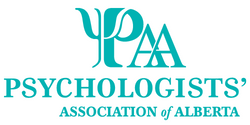
Working with Suicidal Clients: Assessment and Intervention – 6 CE Credits
Abstract
Working with suicidal clients is cited as the most stressful activity for psychologists. Even for seasoned clinicians, we find ourselves pressed for time, lacking confidence, and fearful of liability. And, in the last 10 years, suicide prevention has changed dramatically; what we thought helped (i.e., structured assessments, hospitalizations) may actually hurt and does not follow our ethical responsibilities to maximize benefits and minimize harms. This workshop is designed to support clinicians effectively working with suicidal clients, including (a) understanding your attitudes towards suicide, (b) learning about advances in suicide prevention research, and (c) developing and practicing skills to incorporate into your practice. Broadly, we frame suicide assessment and prevention as a collaborative problem-solving process in the face of unremitting psychological suffering. Specifically, we will discuss knowing how to respond to a sudden suicidal ideation disclosure, planning for safety, as well as short and long-term treatment planning to address the difficulties leading to suicidal urges. We will review commitment strategies designed to elicit and strengthen client willingness to follow through on safety plans when they have strong urges to die and discuss how to treat suicidal behaviours effectively with a focus on long term reduction of suffering. You will leave our workshop with practical tools to implement in your suicide prevention practice as well as a new understanding of how best practices have changed.
Intended Audience
This workshop is designed to support clinicians effectively working with suicidal clients.
Learning Objectives
Reflect upon and better understand biases and beliefs related to suicide and provide some opportunities for reflection on the ethical basis of practice
Learn about the recent evidence in suicide risk assessment and how we can adapt this learning to better support our client’s disclosures, treatment, and safety.
Increase comfort and skill with suicide assessment in session and ongoing tracking of suicidal urges and behaviours throughout treatment
Learn to assess the function of suicide thoughts, urges, and behaviours and link these difficulties directly to treatment with a goal to reduce client guilt and shame, reduce risk, and increase hope
Provide practical means to anchor treatment in the problems leading to suicidal urges through assessment and intervention
Presenters

Rachel King, Ph.D., R. Psych and Jonathan Dubue, Ph.D., R. Psych
Rachel King, Ph.D., is a Registered Psychologist at ECSS Psychological in Edmonton. She completed her doctoral degree at the University of Alberta in 2019 and won the PAA Dissertation of the Year Award. Rachel completed her residency at the Edmonton Consortium in 2018 and has worked on DBT teams in both public health and private practice over the past 10 years. Rachel has published in the areas of hope, resilience, treatment of suicidality, and DBT treatment. Rachel has taught as a sessional lecturer at both the University of Alberta and Concordia University of Alberta. Over the past two years, Rachel has offered workshops through the PAA on the Principles of DBT. She lives near the river valley in Edmonton with her husband, two sons, and golden retriever.
Jonathan Dubue, Ph.D., is a Registered Psychologist and Clinical Supervisor for the University of Alberta’s Counselling Psychology program (CPA-Accredited). He is also the Associate Director of Training for the Edmonton Cross-Specialty Psychology Residency Consortium (CPA-Accredited) and runs a small private practice. He completed his master’s thesis and PhD dissertation on the topic of suicide risk assessment, which won both the CPA’s Counselling Psychology & PAA’s Best Doctoral Dissertation Award in 2023-24. From his research, Jonathan has facilitated over 20 suicide prevention workshops including presentations for AHS, CAP, UofA, MacEwan University, and private practices. He spends the rest of his time playing excessively long board games, hiking through the river valley, and developing the courage to start winter cycling.
Cancellation and Refunds
Cancellation and refunds may be applied for by email or phone call to the PAA Continuing Professional Development Officer. Cancellations received fourteen (14) days prior to the Continuing Professional Development activity will receive a full refund of the registration fee, less a $35.00 + GST processing fee. PAA reserves the right to cancel any activity, in which case a full refund of the registration fee will be provided.
Continuing Education Credits
The Psychologists’ Association of Alberta (PAA) is approved by the Canadian Psychological Association (CPA) to offer Continuing Education (CE) for psychologists. This workshop is offered for six (6.0) hours of CE Credit. Full attendance at the workshop is required to receive Continuing Education Credits. Partial credit will not be awarded, and late arrivals or early departure will preclude awarding of Continuing Education Credits. PAA maintains responsibility for the program.
- This event has passed.
Details
- Date: March 17, 2025
-
Time:
9:00 am - 4:00 pm MDT
- Cost: $450.00
- Event Category: Workshop
Venue
- Civic Room 1, Stanley Milner Library
-
7 Sir Winston Churchill Sq NW
Edmonton, Alberta T5J 2V5 Canada
